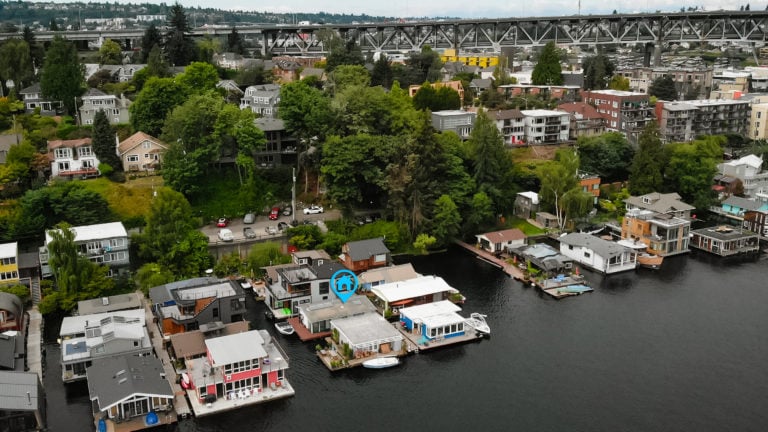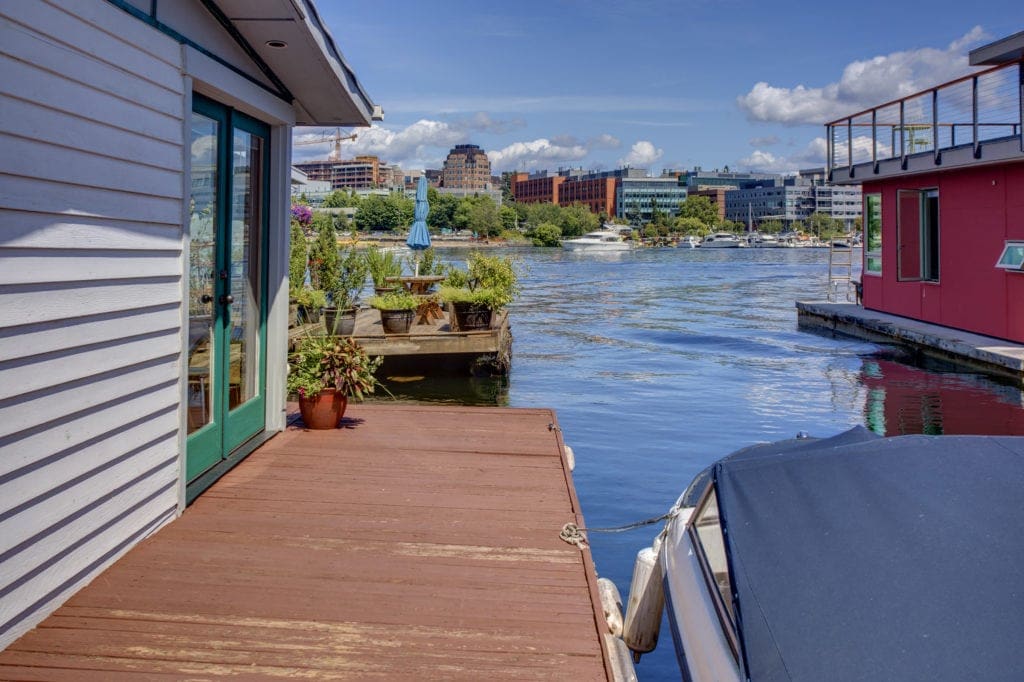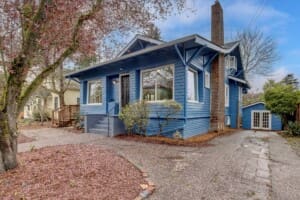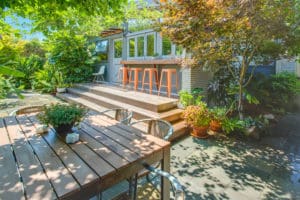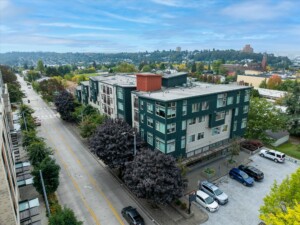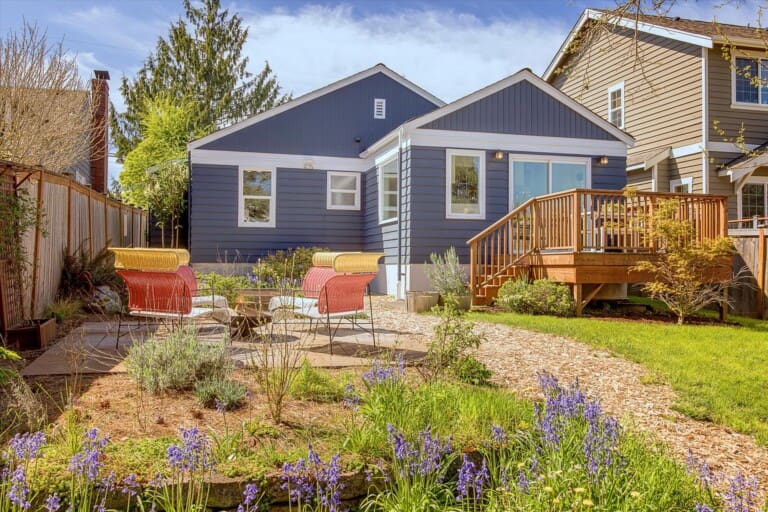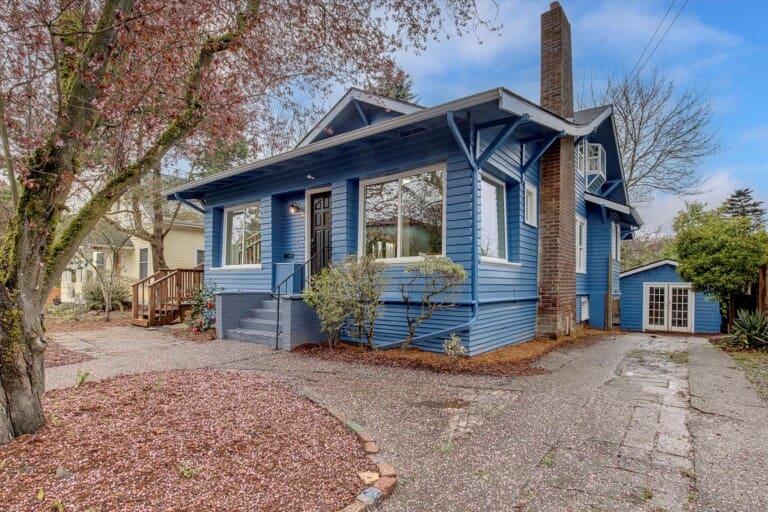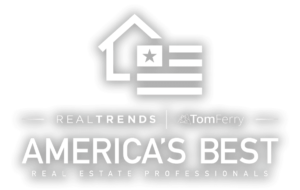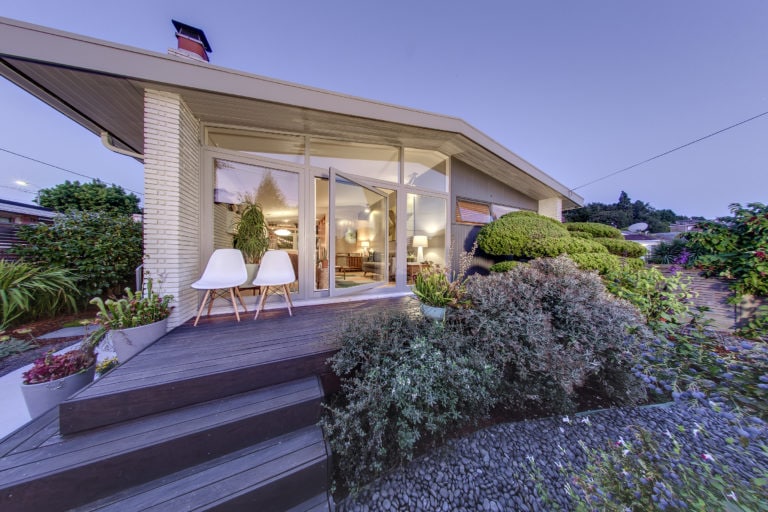Ever wanted to know the details of living in a houseboat or floating home? Check out our Seattle Houseboat and Floating Home guide below before wading in. In this blog, we will go over where Houseboats and Floating homes are located in Seattle, the differences between a houseboat and a floating home, what the rules and regulations are for moorage, how do you pay property taxes on your home, and how to find a houseboat or floating home in Seattle.
Where are the Houseboats and Floating Homes Located in Seattle?
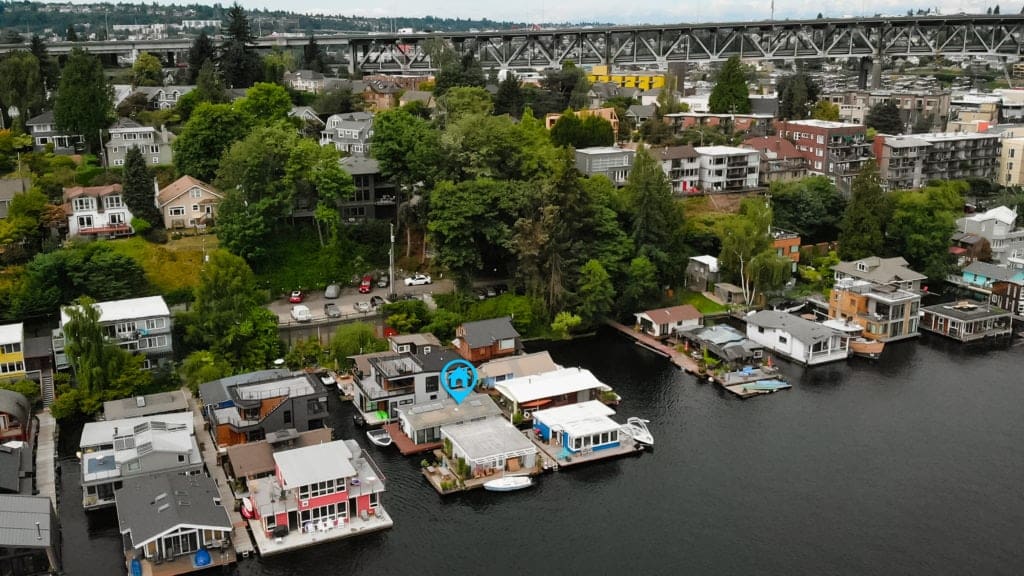
In Seattle, there are several communities and marinas especially set up for houseboat and floating home living. As of now, there is a cap of 560 floating homes that can exist in Seattle—which means if you own one of these, you have a hot commodity! Although no more lots can be added, in some areas, existing floating homes can be replaced depending on the rules of the community where your lot is located.
Where Houseboats are concerned, there will always be competition for moorage in some of the marinas. Not all marinas in Seattle allow liveaboard moorage (or they limit the number of live-aboard renters). Portage Bay, Westlake, Eastlake and Fremont are some of the best neighborhoods to look for houseboats and floating homes. Every moorage facility is different, with its own fee schedule and rules. Some are more industrial, while others are homier.
Before we progress further, it might be worth clarifying…
What Is The Difference Between a Houseboat and a Floating Home in Seattle
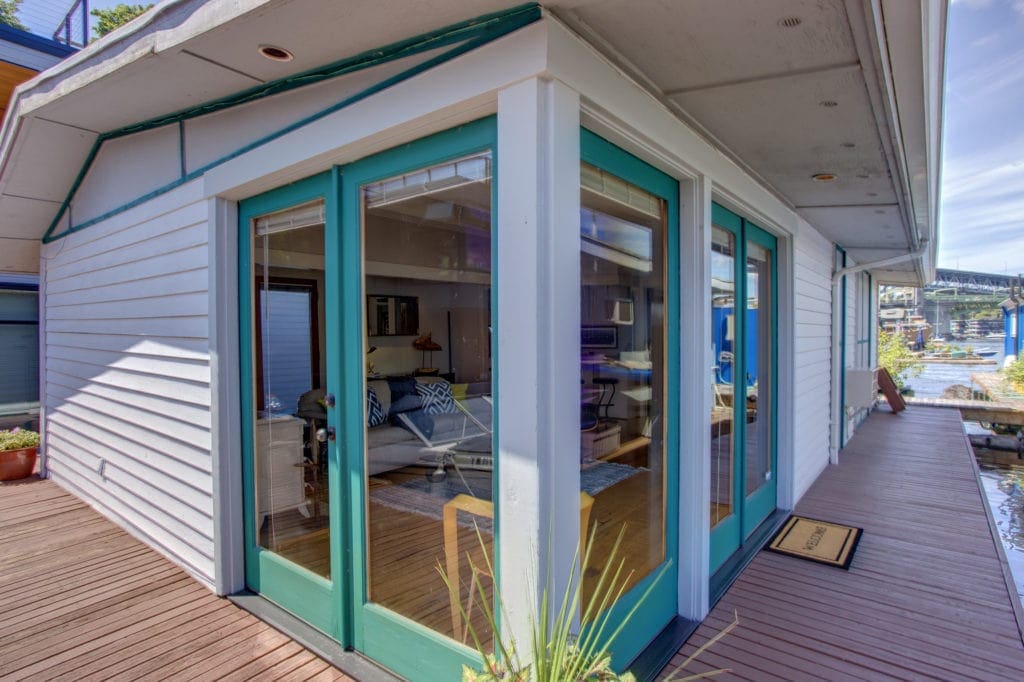
In general, folks use the word Houseboat to mean any live aboard property on the water, but there is a distinct difference between these and floating homes. Technically, a Houseboat is a barge with a house on it that has a motor and steering and can move on its own. (This is not to be confused with “live aboard boats,” but I digress.) Currently, no new House Boats are allowed in the city of Seattle, and all have to be registered.
Floating Homes are exactly what you think: a home that floats on the water. They have no propulsion of their own and, in general, are not meant to be moved. As I mentioned earlier, these are limited and no more lots can be created, although new homes can be built on some existing lots.
Here are some things to ask and consider when looking for floating homes and houseboats in Seattle.
What are the Rules and Expenses of Houseboat and Floating Homes Moorage in Seattle?
Some marinas have a combination of rented and owned slips for houseboats. There is an HOA for slip owners, and these also come with quarterly dues for facility maintenance. In these marinas, slip owners can liveaboard, but boat owners just renting moorage cannot. (Don’t expect to be able to rent out your houseboat to a renter living aboard, either, even if you own the slip.)
What about floating home moorage in Seattle?
The design of moorage for floating homes is different from that of active marinas for boating, but many of the same rules apply. Some are among the homiest waterfront areas. If you walk the lakeside trail in Westlake, you’ll see entrances to many charming floating home communities, with personalized gates, mailboxes, landscaping and signage. Portage Bay is also one of the most desirable locations to own a floating home, thanks to easy access to downtown, stunning views and secluded docks.
As with any condo, common areas in marinas are managed collectively or through a third party. Either way, there are homeowners association fees to pay for maintenance and standard rules and regulations that vary from HOA to HOA. As always when buying a home, you have to look over the fine print to know what you are getting into.
We really cannot stress this enough: EVERY situation is different. Sometimes, the association collectively owns the land, but not the dock. Sometimes they own both. Sometimes individual owners only have claim to the waterline, and sometimes to the land underneath. It’s not quite as straightforward as “landlocked” transactions, but it is just a matter of getting educated.
It is incredibly important for houseboat and floating home buyers to do their due diligence, ask the right questions and have a knowledgeable Seattle real estate agent to help them with their purchase.
Let’s talk about Property Taxes for Floating Homes and Houseboats
Slip owners pay property taxes in Seattle, but these are usually nominal compared to what people pay on land. When one does the math combining taxes and fees, compared to condo or single-family homeownership on land, floating homeowners generally pay less.
The size of the moorage and whether you own just at the water level or to the ground itself determines tax rates and what one is allowed to do with the land. As always, read the fine print.
What Are Other Things I Should About Floating Homes and Houseboats?
Every community is going to have it’s own regulations, nuances, and culture. Obviously getting to know the details of the community you are most interested in is going to help you make a smart decision.
- Height limitations: View rights among one’s neighbors may impact your ability to build up in a floating home. However, citywide regulations state that no portion of a floating home should exceed 18 feet above
- the main deck or
- 3 feet above the surface of the water, whichever is lower.
- the main deck or
- DNR Management: When a dock exceeds a certain length, a portion of it may fall under the management of the state’s Department of Natural Resources (DNR) instead of the city of Seattle. Once again, this varies from dock to dock so make sure to review your title thoroughly before you buy and know the pros and cons to being on a DNR managed portion of your dock.
We are in the process of writing a bunch of content about floating homes and houseboats. Check back soon!
Finding a Houseboat or Floating home in Seattle
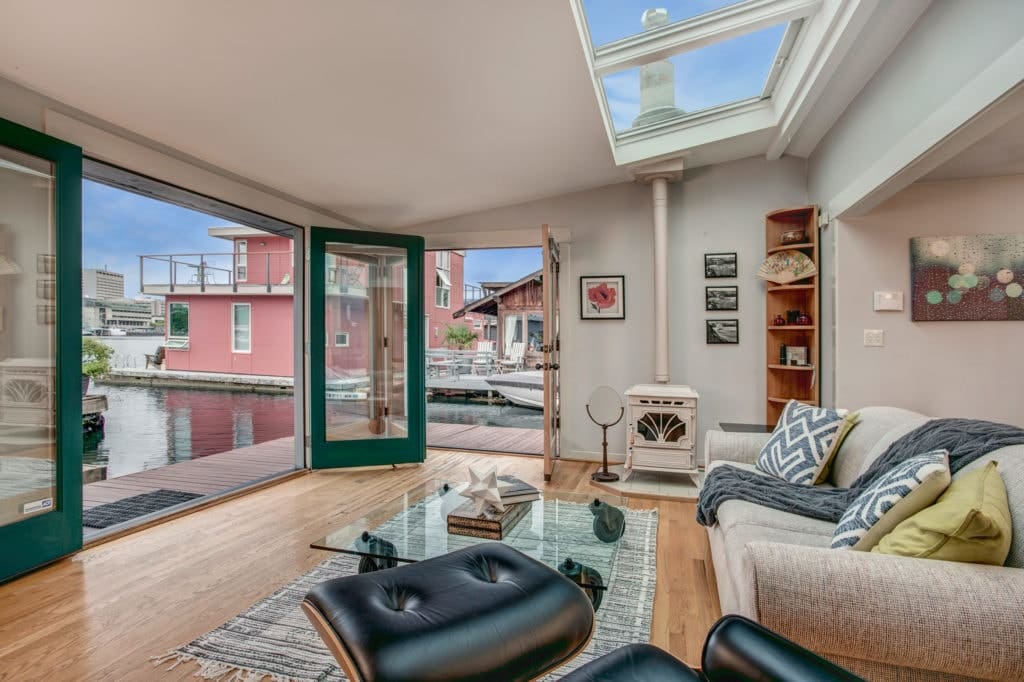
If you want to buy a houseboat or floating home, it’s best to find one in a location you already like. The freedom to change location is great and has romantic appeal, but it’s better when moving doesn’t feel like a necessity. After all, the freedom to move doesn’t amount to much if you don’t also feel free to stay put and enjoy the view. In short, make sure you do your research and find a houseboat or floating home in a location you also want to call home.
Again, we recommend looking in Portage Bay, Westlake, Eastlake and Fremont. Among these options, Portage Bay is the quietest and secluded. The closer you get to Fremont and the ship canal, the more active the waterways become. No matter where you look or whether you want a floating home or a houseboat, life on the water is enchanting. If you want to be among the select few who get to enjoy it every day, Seattle is a great place to be.
Feeling ready to start looking for a houseboat or floating home for yourself? As always our home buyer section is filled with details about the general process. The key things to know when starting the process is understanding the difference between a houseboat and a floating home, knowing where in Seattle to look for a home on the water, knowing in detail the rules and regulations for moorage, figuring out that there are subtle details for paying property taxes, and so much more.
